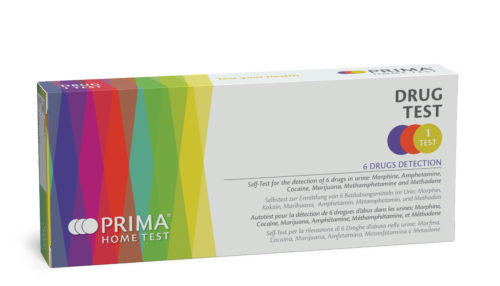
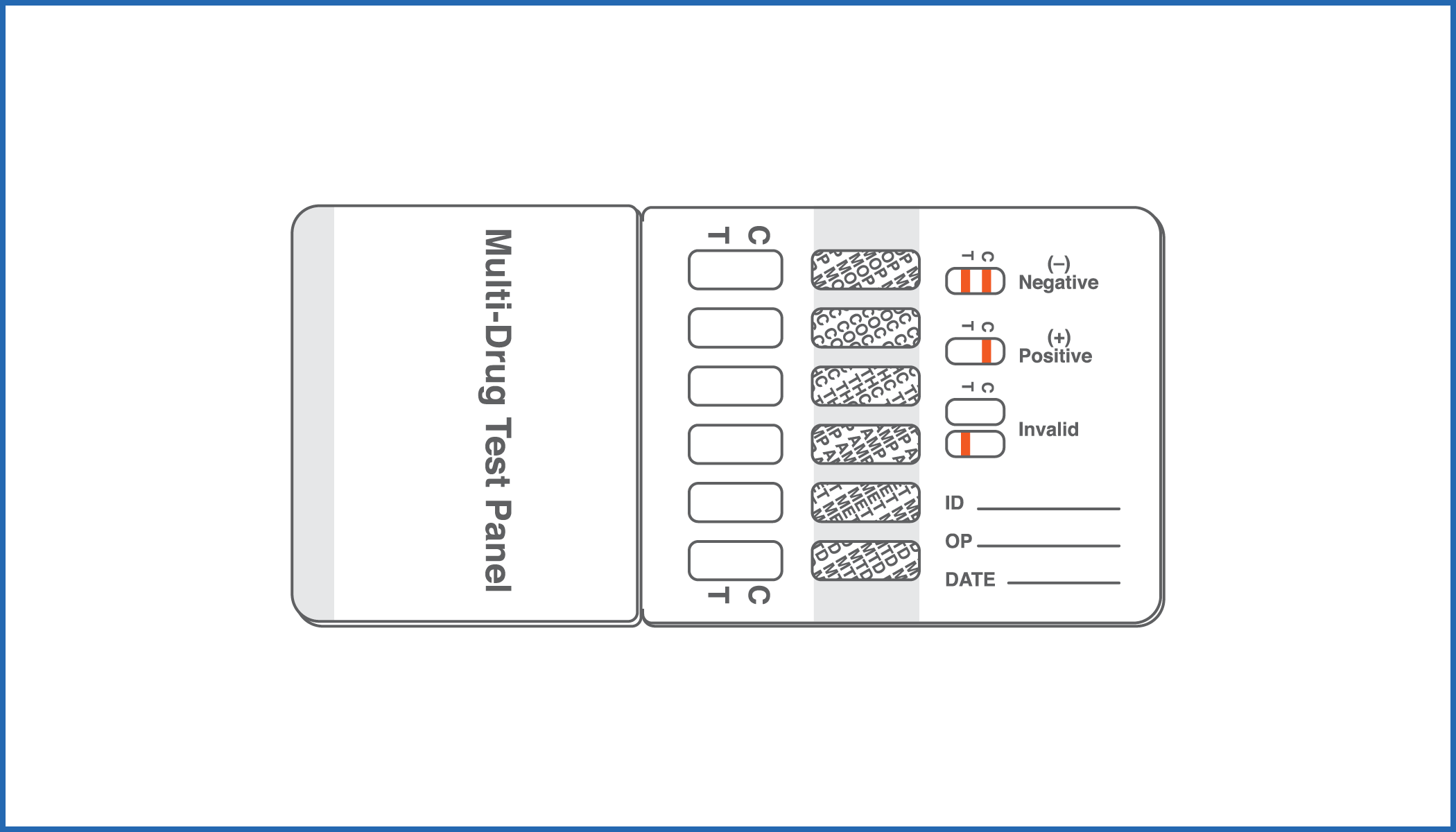
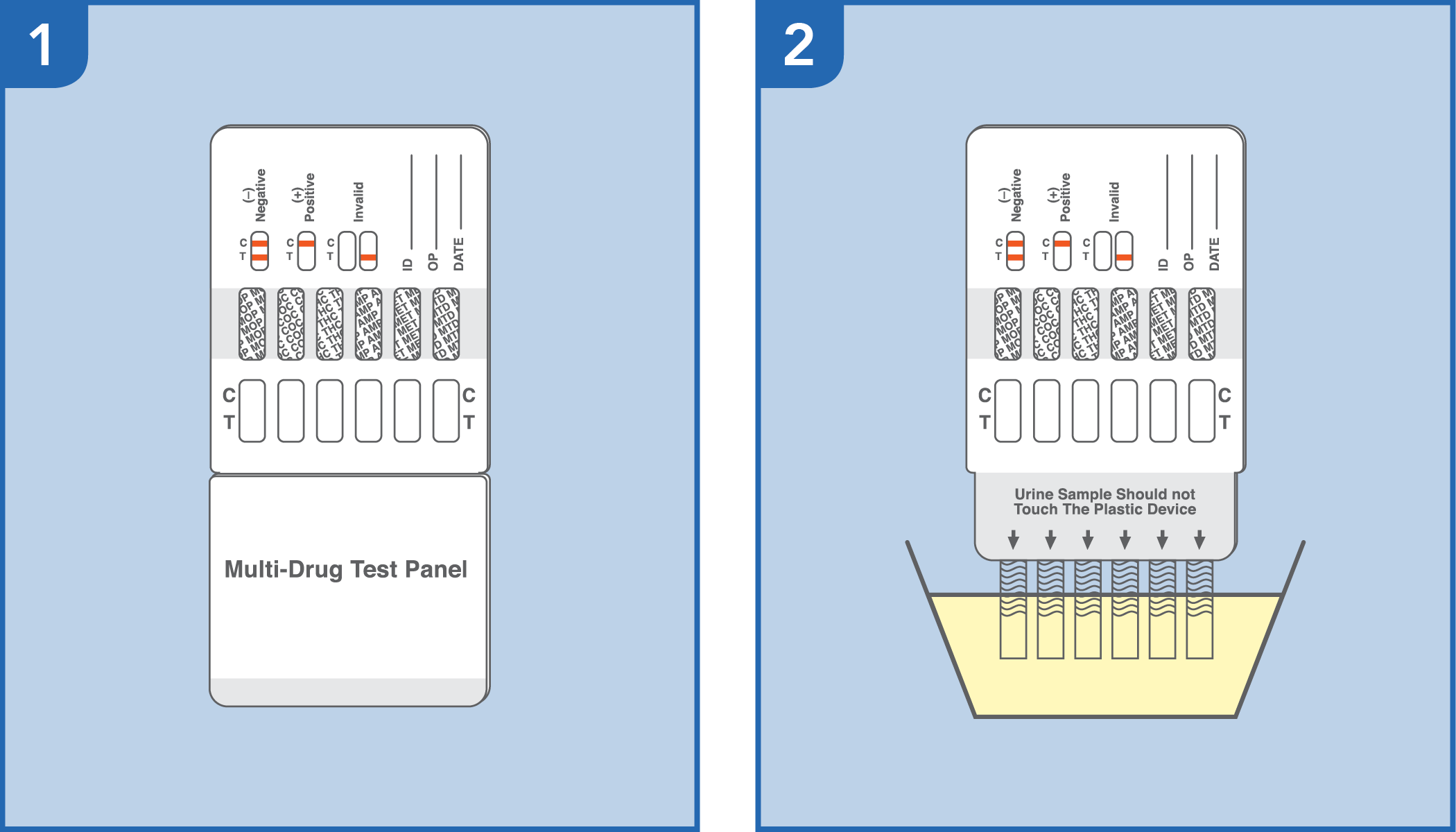
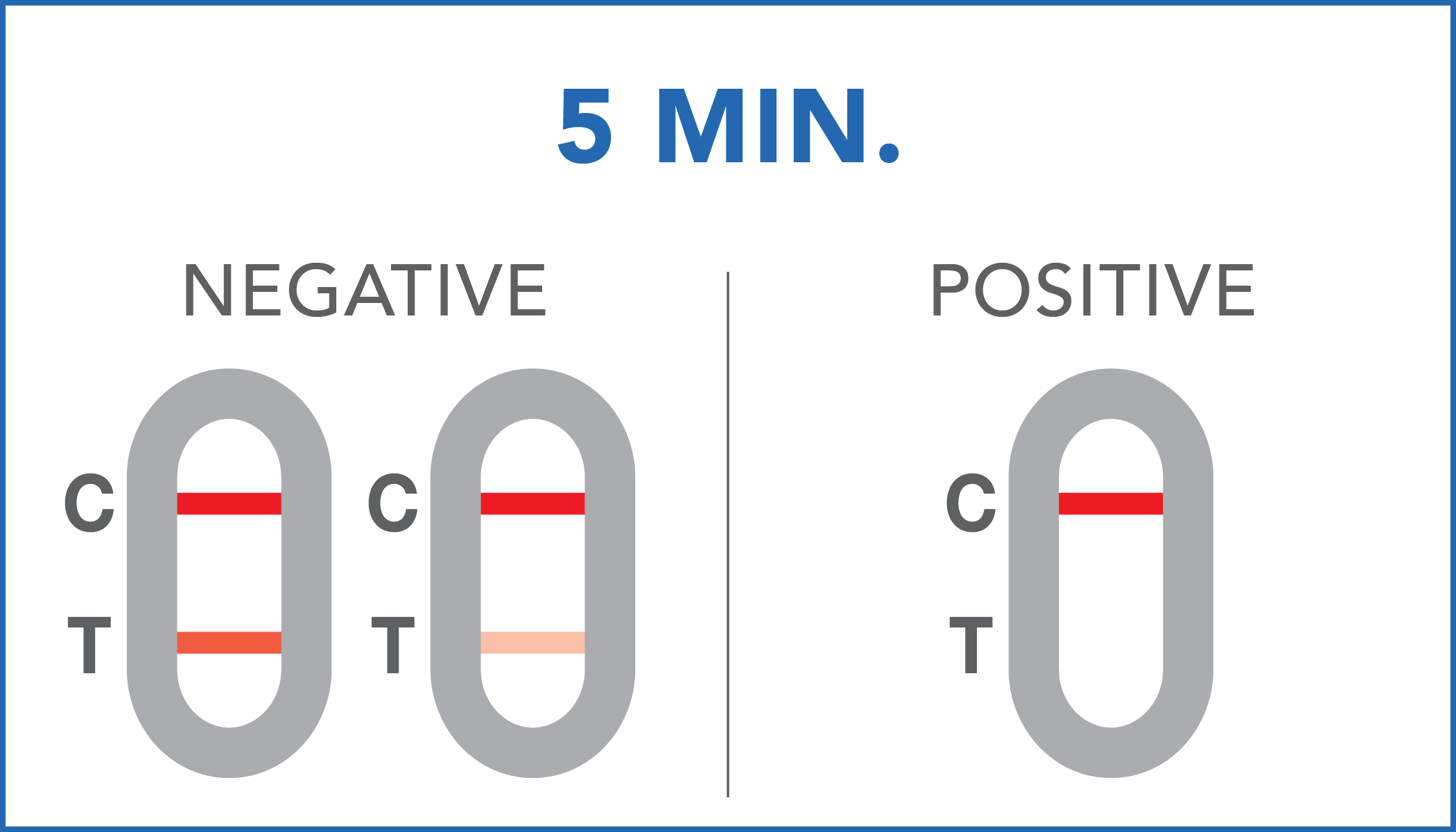
Self-Test for the detection of 6 drugs in urine: Morphine, Amphetamine, Cocaine, Marijuana, Methamphetamine and Methadone
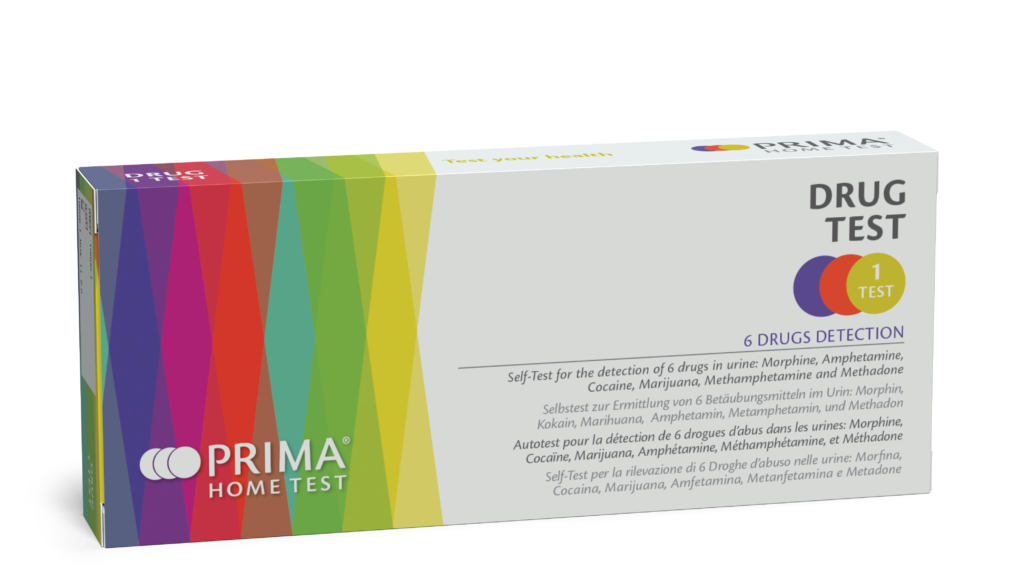
DRUG TEST detects the presence of six different drugs in urine: Amphetamine (AMP), Cocaine (COC), Marijuana (THC), Methadone (MTD), Methamphetamine (MET) and Morphine (MOP).
read moreAmphetamine: it is a powerful stimulant of the central nervous system that leads to a feeling of energy and power beyond measure (increases heart rate, blood pressure, suppresses the sense of hunger, etc.).
Cocaine: is a local anesthetic and a central nervous system stimulant that can lead to fever, apathy, difficulty breathing and loss of consciousness when taken in large quantities.
Marijuana: is a hallucinogenic agent resulting from the flowering of the hemp plant (Cannabis sativa). After taking Marijuana, chemical compounds such as tetrahydrocannabinol (THC) are detected in the urine. Marijuana use can cause: impaired sensory perception, impaired short-term memory, paranoid attacks, anxiety, depression and confusion.
Methadone: is an analgesic narcotic prescribed for the treatment of pain and for the treatment of opiate addiction, it provides pain relief for a long time.
Methamphetamine: chemically it is very similar to amphetamine, but produces heavier effects on the central nervous system. Acute and large doses lead to high stimulation of the central nervous system inducing euphoria, alertness, reduced appetite and a sense of high energy and power.
Morphine: is an opiate that acts on the perception of pain, affecting the central nervous system; it is used in medicine as an analgesic for the treatment of acute and chronic pain. High doses of Morphine lead to high levels of tolerance and addiction, physiological dependence and abuse by consumers.
DRUG TEST is indicated for anyone who needs to detect the presence of drugs in the sample (e.g. for work, sports or personal reasons).
read moreDRUG TEST is a rapid self-test that can be performed without the use of instrumentation. The speed and sensitivity of immunochemical techniques have made these devices the leading methods for drug abuse screening.
DRUG TEST uses monoclonal antibodies for the selective detection of high levels of specific drugs in the urine. During testing, the urine sample flows by capillary action and, if a certain type of drug is present in an amount below the detection threshold, it does not saturate the binding sites of its specific antibody. The antibody will then react with the drug-protein conjugate complex and a visible band will appear in the test region associated with the specific metabolite.
| Specificity AMP | 99.9% |
| Sensitivity AMP | 99.9% |
| Specificity MET | 99.9% |
| Sensitivity MET | 99.9% |
| Specificity COC | 99.9% |
| Sensitivity COC | 99.3% |
| Specificity MOP | 99.4% |
| Sensitivity MOP | 99.9% |
| Specificity MTD | 99.9% |
| Sensitivity MTD | 99.3% |
| Specificity THC | 99.4% |
| Sensitivity THC | 99.9% |



| Negative | the concentration of the analyzed drug is below the established threshold levels. |
| Positive | the concentration of the analyzed drug is above the established threshold levels. |
The test has been carried out correctly when the instructions for use are followed. It includes the reading time and the interpretation of the results shown at the "RESULTS INTERPRETATION" section of the instructions for use.
A colored line will appear at the control region (C) on the test device, showing that the test performed correctly. The absence of the colored line suggests to repeat the test with a new device and a new sample.
The color and intensity of the lines do not affect the interpretation of the result. The test has to be considered positive regardless of the color intensity of the test line (T).
Check product availability with the local representative in your country
